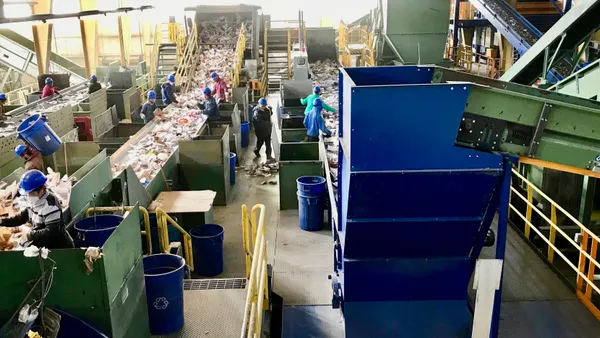Dive Brief:
- Facing criticism over the e-waste consequences of 4.3 million recalled Galaxy Note 7 phones, Samsung has issued a new statement on its disposal plan. "We recognize the concerns around the discontinuation of the Galaxy Note 7 and are currently reviewing possible options that can minimize the environmental impact of the recall in full compliance with relevant local environmental regulations," said the company, as reported by the International Business Times.
- This comes shortly after Greenpeace released a statement calling for more details about what the company will be doing with devices that contain an estimated 1.61 million pounds of material with rare resources such as gold, cobalt and tungsten.
- Due to the phone's potential to overheat and explode into flames, all of the devices are slated for disposal and can't be transported by air. Greenpeace is questioning whether any materials will be recovered and whether this will happen in one central location or on a regional level.
Dive Insight:
These concerns were raised last month when the recall was first announced and have grown as the full scope of 4.3 million phones sold in 10 different countries became apparent. The company plans to automatically install a firmware update which will limit the battery charge on these phones, but they have already been banned from all U.S. flights and become a popular target for jokes.
Earlier this year, Samsung won the 2016 Design for Recycling Award from the Institute of Scrap Recycling Industries for its use of "environmentally-conscious materials" and other features in the company's Curved Full HD TV. Yet the company's decision to glue the Galaxy Note 7's battery to its case for a slimmer size — for the first time in the phone's history — has been criticized for limiting repair options. If the battery had been replaceable the problem could have potentially been avoided.
Apple, Microsoft and other major companies have been called out for taking this approach long before Samsung and advocates are working on legislation which could require them to change their ways. Having the ability to repair phones, tablets and laptops could extend product lifespan and reduce the overall amount of e-waste generated. This change is also supported by recycling operations which want the ability to more efficiently extra value from these newer devices as they're inundated with costly older items such as CRT units.










